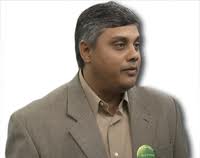The system is “out of control” because corruption has put so much sand in the gears as to make nature grind to a halt in pain. Seeds that commit suicide is a man-made threat to humanity.
The non-violent antidote to this tsunami of corruption across all forms of organization (including “think tanks” that are nothing more than intellectual prostitutes, and media “empires” that use news holes to anchor weapons of mass deception) is Open-Source Everything. Transparency, Truth, & Trust. From local to global, humanity needs to begin the Long March that begins with rejecting all goods, services, and regulations that are crimes against humanity. We do that with True Cost Economics, total Transparency, and individual virtue: do not buy crap from evil doers. It will take 25 years to undo the damage that has been done to the Republic. 2012 is an opportunity to achieve electoral reform sufficient to take the White House and create a swing vote center in both houses of Congress. Open Seeds and Open Government and Open Society are one public away.
 Farmers Issue Lawsuit Against Monsanto for Widespread Genetic Manipulation
Farmers Issue Lawsuit Against Monsanto for Widespread Genetic Manipulation
Anthony Gucciardi
Activist Post
Farmers are taking a stand against Monsanto, launching a landmark lawsuit against the mega corporation for widespread genetic contamination.
The farmers are concerned that Monsanto’s aggressive agenda to genetically alter the planet will ultimately result in a severe threat to the organic integrity of farms worldwide. It is not hard to believe that many ‘organic’ farms have already been contaminated with GMO crops, as nearly 93% of soybeans are now admittedly genetically modified.
The Public Patent Foundation originally filed the lawsuit in March of 2011 in a case known as Organic Seed Growers and Trade Association (OSGATA) et al v. Monsanto.
The organization launched the suit in the name of the very individuals and organizations threatened by Monsanto’s widespread GMO crops: family farmers, farming organizations, and seed businesses.
The intent of the case is to dispute Monsanto’s patents on GMO seeds and ultimately safeguard farmers from Monsanto’s own vicious lawsuits.
In fact, between 1997 and 2010, Monsanto actually filed 144 lawsuits against American family farmers. In addition, another 700 were settled out of court for unknown amounts. Monsanto has an agenda to take out American family farms and dominate the agricultural industry with their own mutant seeds. This is the same kind of practice that Monsanto operates outside of the United States as well, driving thousands of poor farmers to suicide by ruining their family farming practices.
The first phase of the case began yesterday on January 31, 2012. More than 50 farmers and plaintiffs have gone to Manhattan to listen to verbal debates surrounding Monsanto’s attempts to dismiss the lawsuit.
You can take action now by voicing your opposition to Monsanto and their corrupt practices. Your submissions are reportedly to be shared with farmers around the globe who will ultimately play a vital role in the determination of whether or not Monsanto will be able to continue its mass manipulation of the food supply.
















